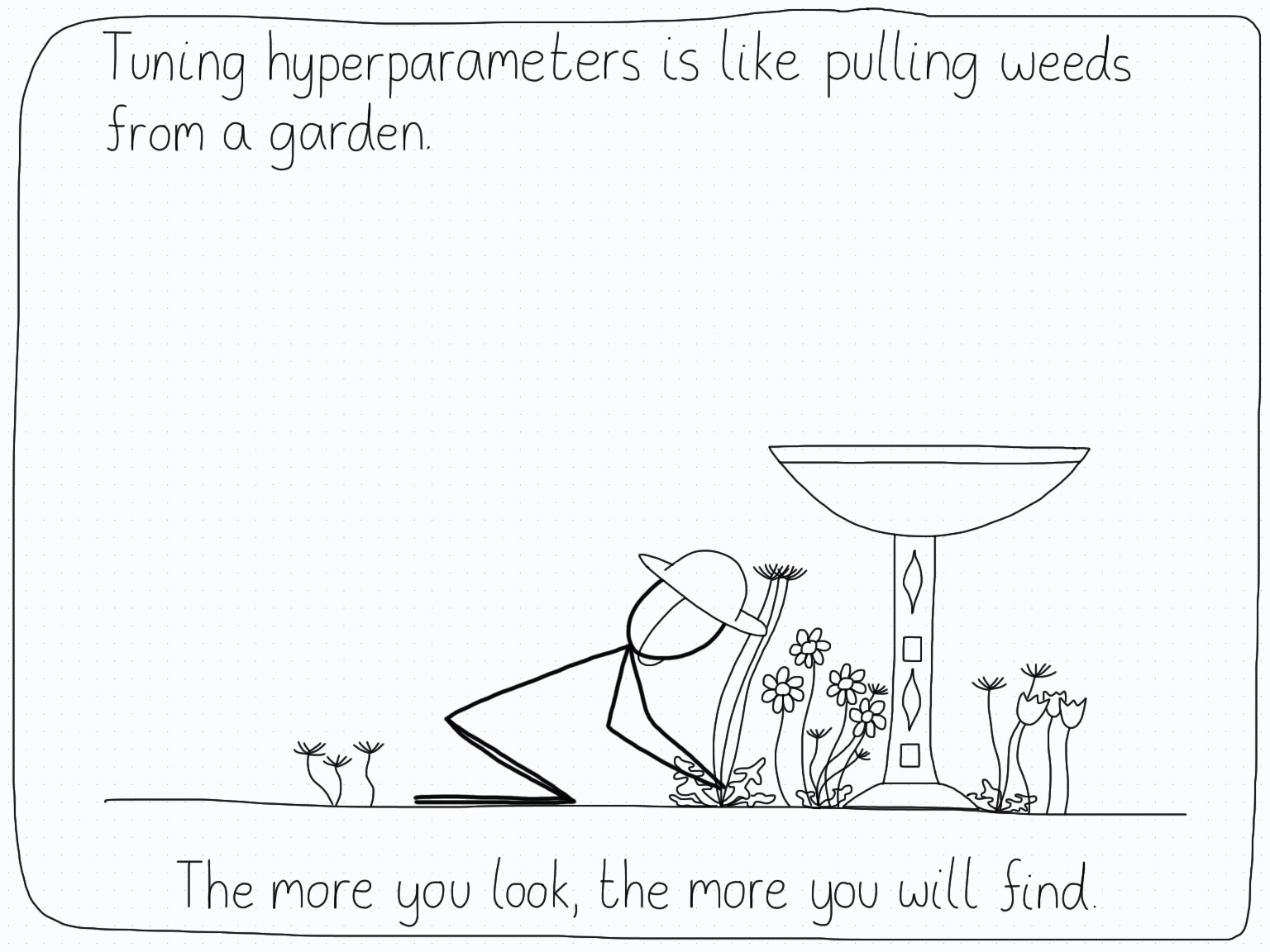 Comics about mathematics, science, and the student life.
Comics about mathematics, science, and the student life.
XOR
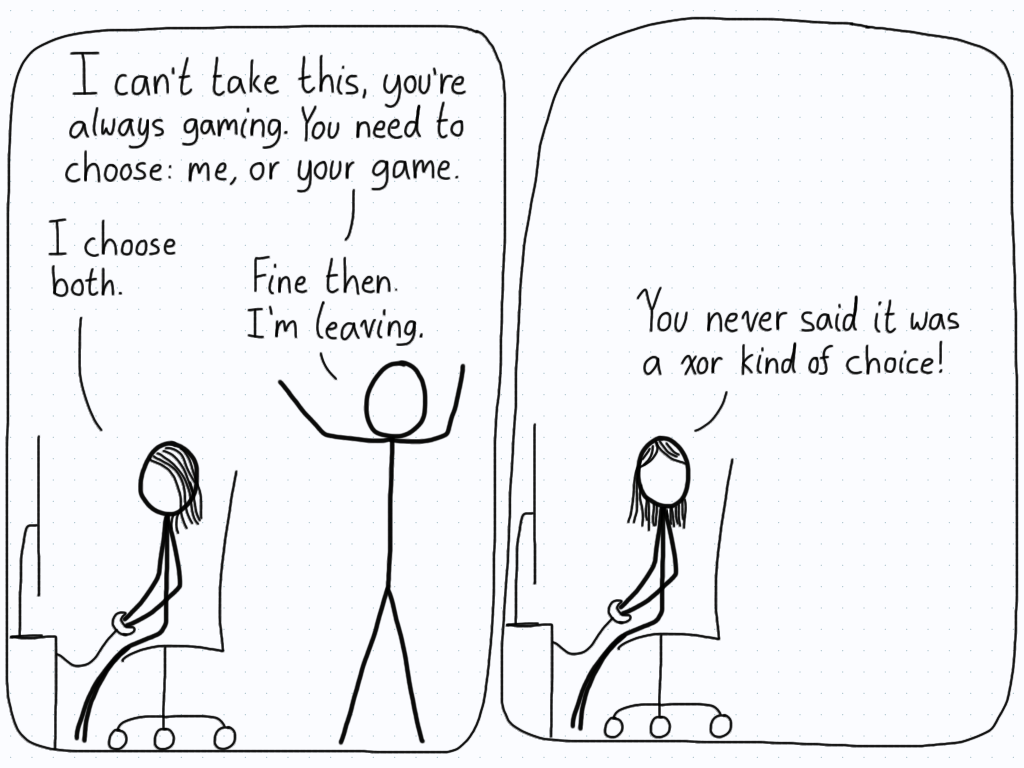
This is a classic example of a precise mathematical definition that does not coincide with our typical usage.
29 Jul 2020Orphans

Once you’ve minimized the margins and font size, this is the next step towards maximizing the black-to-white ratio on the document!
24 Jul 2020Username Selection
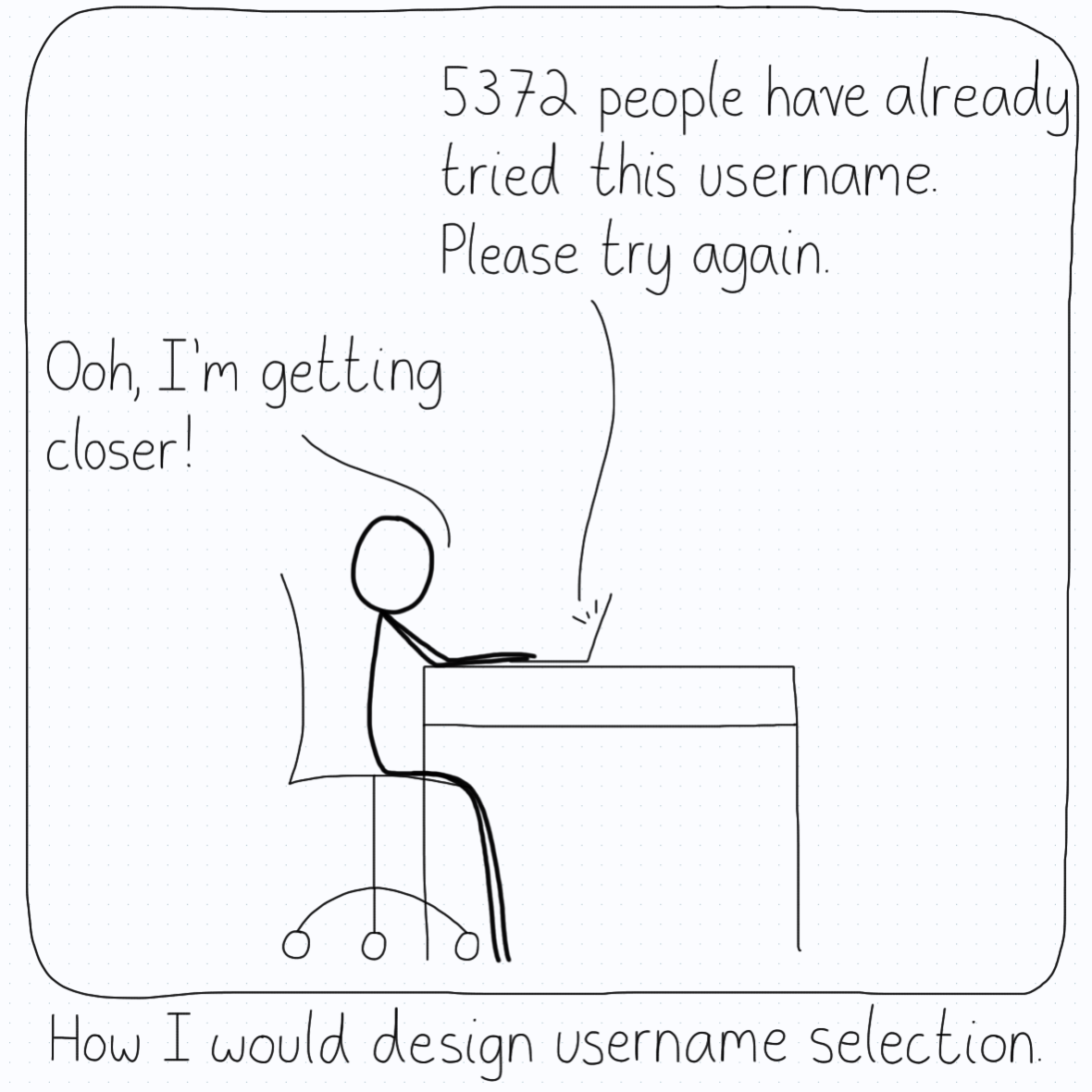
Trying to come up with a good username on an old service is the best way to grasp how unoriginal you are against the collective creativity of humanity.
20 Jul 2020Cherry Picking

“Hey, I’m just the commander of the ship. I only choose the promising directions.”
17 Jul 2020Homework Progression

Despite my best intentions, there’s always the inevitable slump towards mediocrity.
15 Jul 2020The Professor Effect

It’s amazing how consistently this happens to me. It’s almost as if I didn’t really understand what the teacher was talking about!
13 Jul 2020Forearm
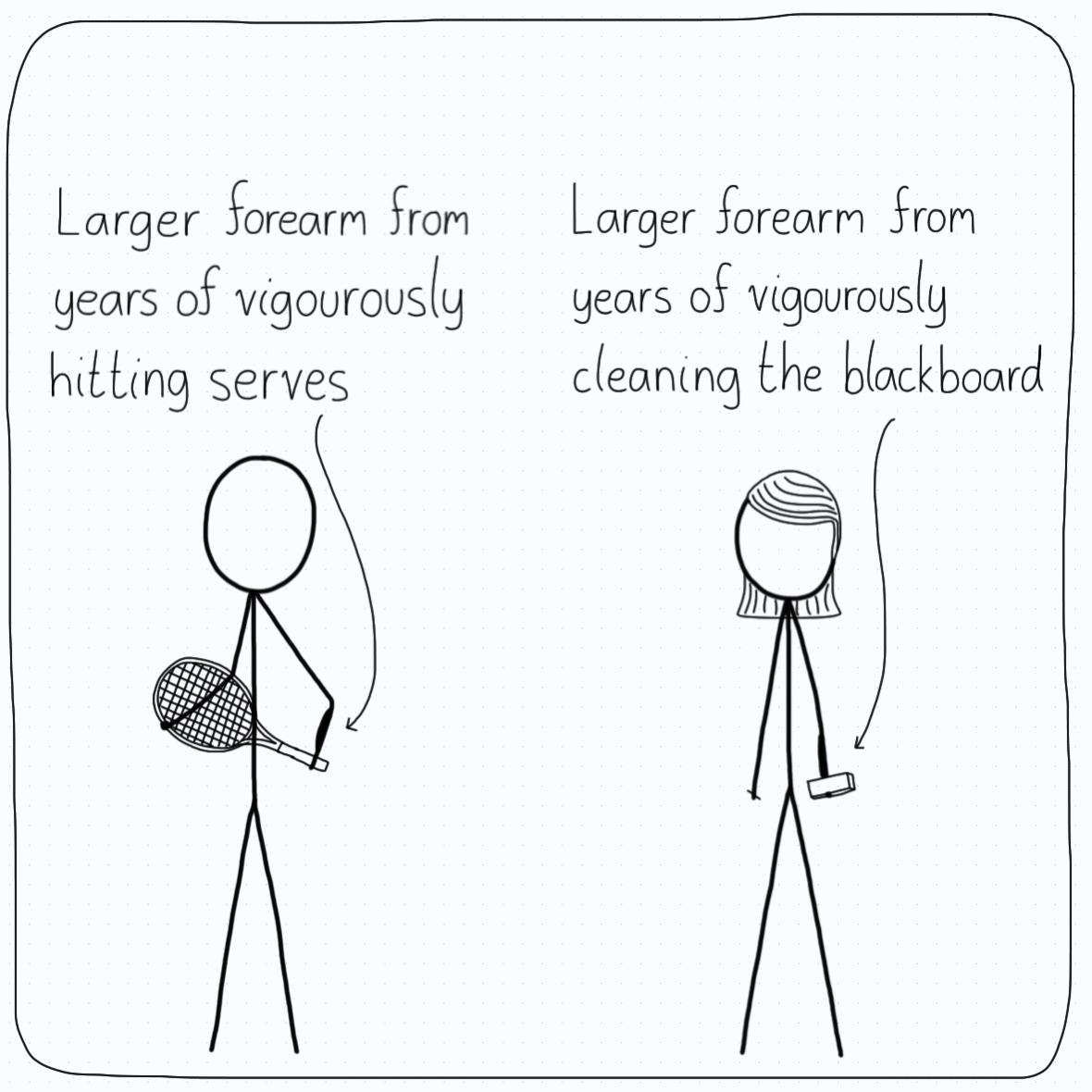
Surprisingly, the forearms of grizzled veterans of the teaching profession appear to be larger than professional arm wrestlers.
10 Jul 2020New Notation
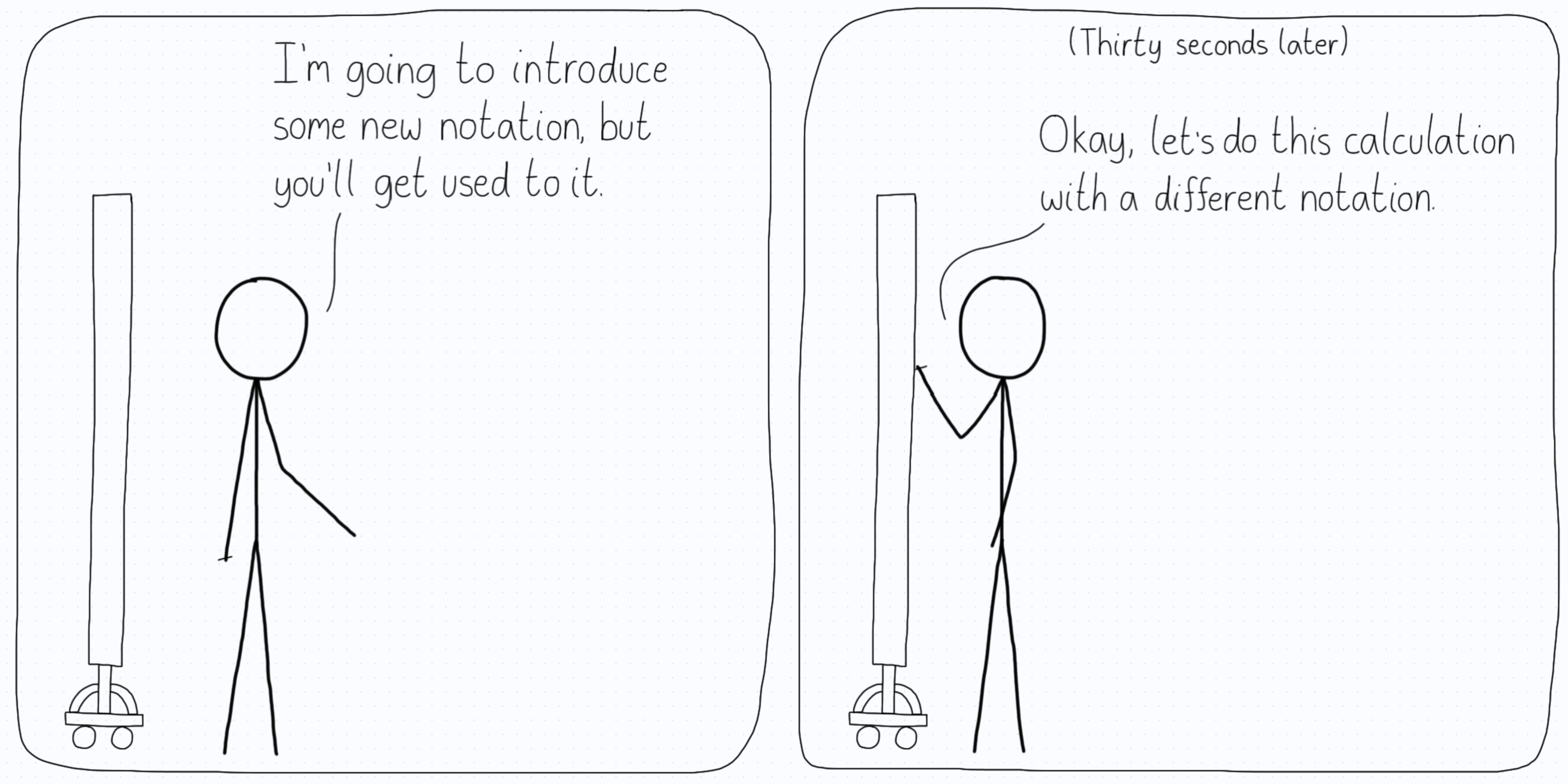
“But wait, the notation will make sense in about twenty minutes, even if I’m not using it now!”
08 Jul 2020